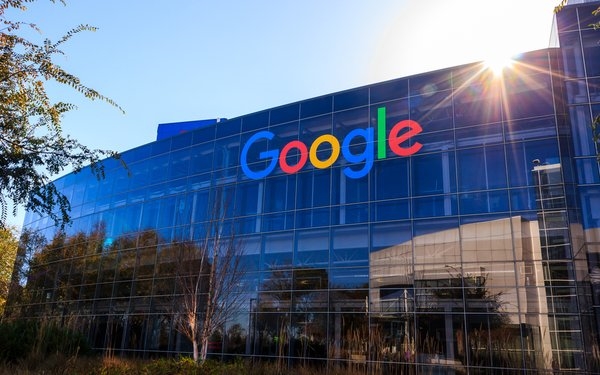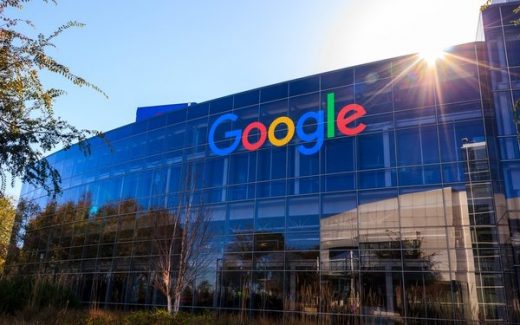States Sue Google For Allegedly Monopolizing Online Display Ads
States Sue Google For Allegedly Monopolizing Online Display Ads

A coalition of 10 states on Wednesday sued Google for allegedly engaging in anticompetitive conduct aimed at squelching competition for online display advertising.
“Google repeatedly used its monopolistic power to control pricing [and] engage in market collusions to rig auctions, in a tremendous violation of justice,” Texas Attorney General Ken Paxton said in a video statement posted to Twitter.
Paxton is leading the multi-state lawsuit, filed in U.S. District Court for the Eastern District of Texas. Attorneys general from Arkansas, Idaho, Indiana, Mississippi, Missouri, North Dakota, South Dakota, Utah, and Kentucky, joined in the case.
“Google uses its powerful position on every side of the online display markets to unlawfully exclude competition,” the attorneys general claim in a 130-page complaint. “It also boldly claims that ‘we’ll never sell your personal information to anyone,’ but its entire business model is targeted advertising — the purchase and sale of advertisements targeted to individual users based on their personal information.”
The complaint alleges that Google “has become the controlling node and the central authority for online advertising,” and that the company “uses its immense market power to extract a very high tax” on ad dollars that would otherwise go to online publishers.
“These costs invariably are passed onto the advertisers themselves and then to American consumers,” the states allege.
Large swaths of the complaint are blacked out, including the exact percentage of ad dollars Google allegedly extracts as a tax from publishers.
A Google spokesperson says the ad-tech claims are “meritless,” adding that digital ad prices have fallen in the last decade.
“We’ve invested in state-of-the-art ad tech services that help businesses and benefit consumers,” the spokesperson said, adding that Google will ‘”strongly defend itself” from these “baseless claims in court.”
The attorneys general make detailed allegations about Google’s role in the ad-tech ecosystem, going back to its 2008 purchase of DoubleClick, which enabled Google to power display ads on outside publishers’ sites.
“As the new middleman between publishers and exchanges, Google quickly began to use its new position to exert leverage,” the lawsuit alleges. “For instance, Google started requiring publishers to license Google’s ad server and to transact through Google’s exchange in order to do business with the one million plus advertisers who used Google as their middleman for buying inventory.”
The attorneys general say publishers adopted header bidding in an attempt to combat Google, but that the company ultimately undermined the strategy.
“First, Google ceded ground and started to allow publishers using its ad server to route their inventory to more than one exchange at a time. However, Google’s program secretly let its own exchange win, even when another exchange submitted a higher bid,” the complaint alleges.
According to the complaint, Google’s code name for the program was “a character name from Star Wars,” but the name itself is blacked out.
Google also allegedly collaborated with Facebook to undermine header bidding, according to the complaint.
“Facebook decided to dangle the threat of competition in Google’s face and then cut a deal to manipulate the auction,” the lawsuit alleges. “In the end, Facebook curtailed its involvement with header bidding in return for Google giving Facebook information, speed, and other advantages.”
The code name for that deal was “Jedi Blue,” according to The Wall Street Journal.
While the attorneys general allege that Google has a “monopoly position” in the market, research firm eMarketer says Google’s share of online ad revenue has declined in the last three years. eMarketer says Google’s U.S. 2020 ad revenue, estimated at $42.39 billion for this year, will account for 29.8% of total digital ad spending; in 2018, Google’s $36.48 billion in U.S. ad revenue represented 32.8% of digital ad spending.
Google has previously argued that the ad tech industry is “famously crowded.”
“There are thousands of companies, large and small, working together and in competition with each other to power digital advertising across the web, each with different specialties and technologies,” Google vice president Sissie Hsiao wrote last year in a corporate blog post. “We compete with lots of other companies in this space, including household names such as Adobe, Amazon, AT&T, Comcast, Facebook, Oracle, and Verizon.”
In October, the U.S. Department of Justice brought a separate antitrust lawsuit against Google, alleging that the company monopolizes the market for online search.
(24)


